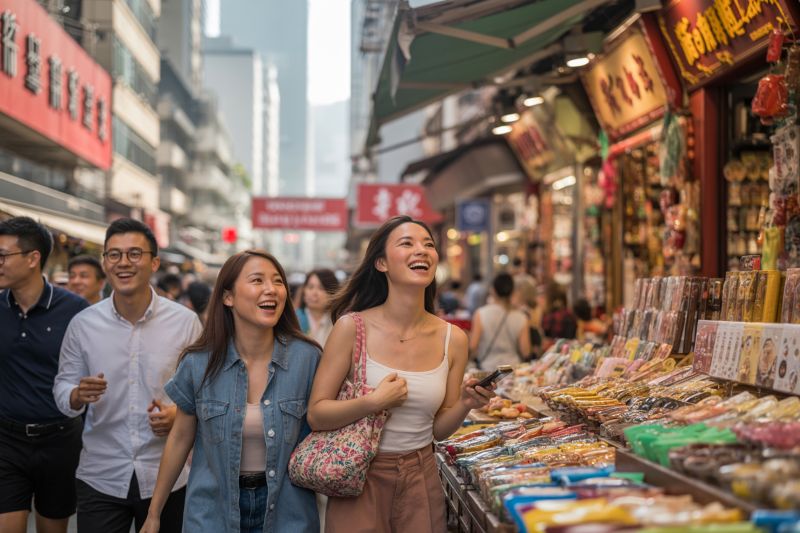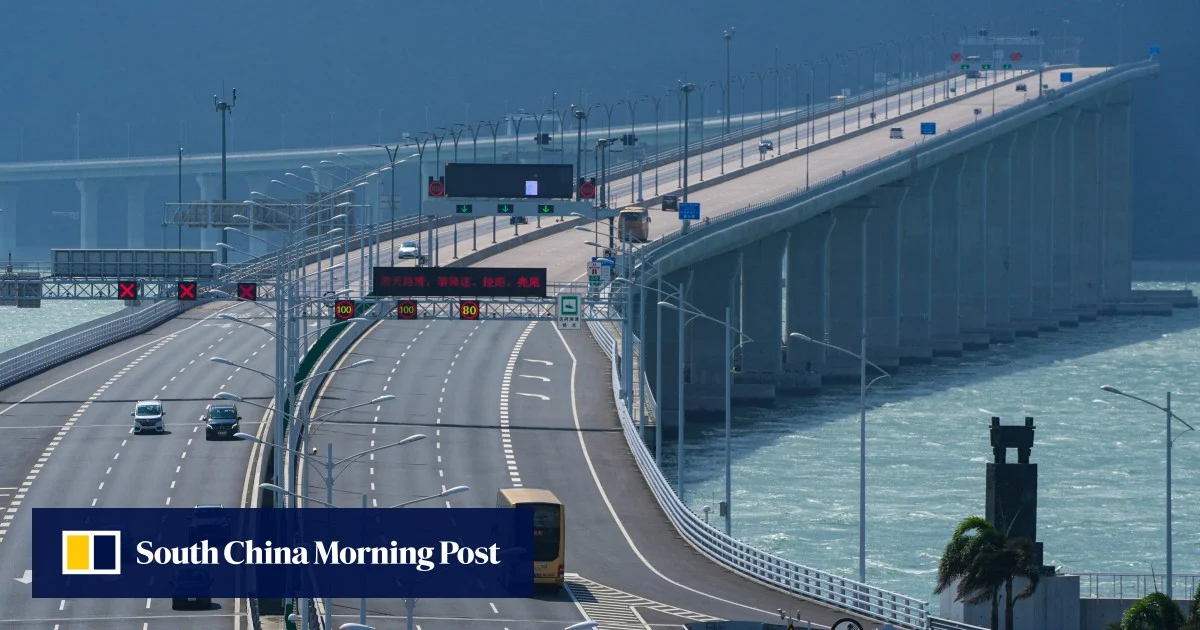Published on
October 10, 2025
Hong Kong’s tourism and retail sectors gained a boost during the recent eight-day Golden Week holiday, which included National Day and the Mid-Autumn Festival. During the Golden Week holiday and festival, businesses in the city including retail, hospitality and tourism, reported strong performances. Profits soared. Market analysts attributed the increase in business performance to the influx of tourists and consumers from the Chinese mainland. Market analysts observe that this inflow of consumers and tourists is a game changer, especially for a market which is recovering from the global economic downturn.
The Hong Kong Special Administrative Region (HKSAR) Immigration Department reported that over 1.4 million tourists and consumers from the Chinese mainland came to Hong Kong during the holidays, which directly increased spending and stimulated holiday tourism. The Hong Kong Travel Industry Council also reported that during the first six days of the holidays, over 1,000 inbound tour groups arrived, which contributed to Hong Kong’s increased popularity amongst mainland tourists and travelers. According to the Trip.com Group, Hong Kong is the fourth most-searched destination for mainland travelers.
Retail Sector Thrives with Increased Foot Traffic and Spending
One of the most noticeable impacts of the Golden Week influx was on Hong Kong’s retail sector, where shopping malls reported a significant uptick in foot traffic and sales. A high-end mall in Tsim Sha Tsui, one of the city’s prime shopping areas, saw a 12% increase in foot traffic and a nearly 20% jump in spending by tourists compared to the same period in the previous year. This surge in spending was driven in large part by mainland visitors, who flocked to Hong Kong for its competitive prices, diverse product offerings, and the city’s reputation as a shopping haven.
The retail boom was particularly prominent in high-demand sectors such as luxury goods and gold jewelry. With gold prices running high, many visitors took advantage of promotions and favorable exchange rates in Hong Kong to make significant savings on gold purchases. As a result, gold items became a primary draw for mainland tourists, who found that purchasing jewelry in Hong Kong was far more affordable than in their home country.
Robust Performance in the Catering Sector
The catering sector in Hong Kong also experienced a remarkable performance during the Golden Week holiday. Average daily revenue in the city’s restaurants reached approximately 300 million Hong Kong dollars (around 38.6 million U.S. dollars), marking a 10% year-on-year increase in the sector’s performance. This growth can be attributed to the influx of visitors seeking to experience Hong Kong’s diverse culinary offerings, from traditional dim sum to modern fusion cuisines.
Hong Kong’s reputation as a global food destination has made it an attractive stop for tourists looking to indulge in its rich culinary heritage. Whether it’s the bustling street food stalls or high-end dining experiences, visitors were drawn to the city’s culinary offerings, helping to boost overall spending and economic activity.
Cultural and Entertainment Events Draw Crowds
In addition to shopping and dining, cultural and entertainment activities played a key role in attracting tourists to Hong Kong during the Golden Week. The city hosted a range of festive events, including fireworks displays, fire dragon dances, and lantern carnivals, which added to the holiday spirit and enhanced the visitor experience. These events showcased the city’s unique cultural blend of traditional Chinese festivals and modern entertainment.
Popular attractions such as Victoria Harbour, the Peak Tram, art museums, and theme parks saw large crowds, with tourists enjoying a diverse range of activities. Ecotourism and nature walks also gained traction, particularly in areas like Sai Kung, where waterfront restaurants were fully booked and boat trips were in high demand. These activities allowed visitors to experience Hong Kong’s natural beauty while also supporting local businesses in the hospitality sector.
Government Initiatives and Infrastructure Development
The government’s efforts to enhance the visitor experience also played a significant role in the success of the Golden Week holiday. The HKSAR government undertook several initiatives to ensure smooth travel for tourists, including cross-departmental coordination to facilitate efficient immigration procedures and improved infrastructure. These efforts helped create a seamless experience for visitors, making Hong Kong a convenient and appealing destination.
Financial Secretary Paul Chan emphasized the importance of promoting mega events and in-depth tours, which provide tourists with a more enriching experience and encourage longer stays. The government’s focus on increasing international visibility for Hong Kong’s tourism sector is expected to attract more high-value tourists and strengthen the city’s position as a global tourism hub.
Long-Term Growth and Future Prospects
The impact of the Golden Week holiday on Hong Kong’s tourism and retail sectors is a positive indication of the city’s potential for long-term growth. With international tourism steadily recovering, Hong Kong’s tourism infrastructure and diverse attractions are well-positioned to continue attracting visitors from around the world. The city’s strategic initiatives aimed at promoting cultural and heritage tourism are expected to further enhance its appeal in the coming years.
By promoting cultural tourism alongside traditional shopping experiences, Hong Kong has established itself as a destination where visitors can enjoy a complete travel experience—combining modern retail, cultural heritage, and unique entertainment. This holistic approach will play a key role in boosting tourism and consumer spending in the future.
A Bright Future for Hong Kong’s Tourism and Retail Sectors
The Golden Week holiday showed just how resilient and attractive Hong Kong is as a destination to International Visitors. The holiday is proof that Hong Kong is resilient and can attract international visitors. Hong Kong is on its way to becoming a leading destination and also reinforces its position as a global destination with hospitality and entertainment activities.
Sustained economic growth and increased consumer confidence point to increased international visitors to Hong Kong. This is a positive outlook and cements Hong Kong’s position as a leader within the global tourism sector. This will be attained by focussing on sustainable tourism which will be strengthened by cultural participation and Hong Kong’s unique international positioned events.



